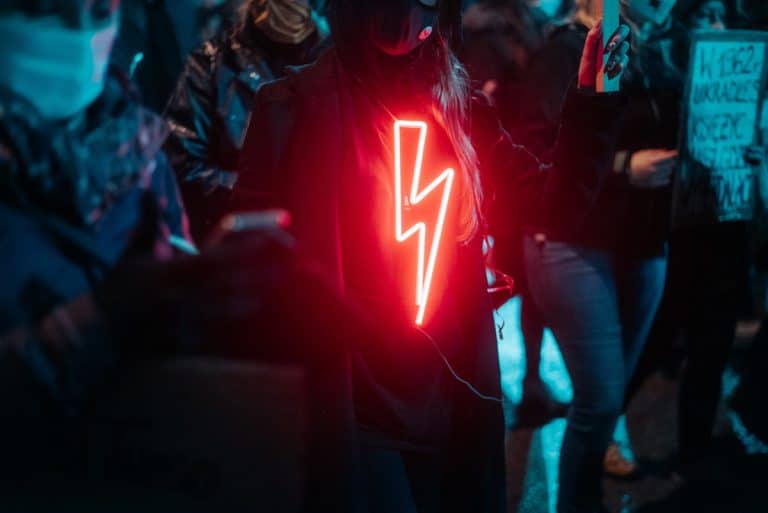Poland passes new controversial near-total ban on abortion

Last week, the Polish government enforced a new controversial near-total ban on abortion, which has taken effect from midnight on Wednesday 27 January 2021. This announcement came after a court ruling allowing the prohibition prompted huge protests when it was issued in October 2020. What does this new ban mean for Polish citizens seeking abortion and how will it deprive women of sexual and personal independence?
What does Poland’s new anti-abortion decision entail?
The October ruling by the Constitutional Court found that a 1993 law allowing abortion in cases of severe and irreversible foetal abnormalities was unconstitutional. According to data from the Polish Ministry of Health, in 2019, 98 per cent of abortions were carried out on those grounds, meaning that the ruling effectively banned the vast majority of pregnancy terminations in Poland.
Understandably, the ruling provoked outrage from supporters of the right to abortion, which prompted the largest protests in the country since the fall of communism. More than 100,000 people gathered in the streets of Warsaw on Friday 30 October 2020.
The tribunal’s decision, which was in response to a challenge from a group of rightwing MPs, has focused anger on the Law and Justice (PiS) party. PiS has ruled Poland since 2015 and has been accused of eroding democratic norms during its time in power by packing the constitutional tribunal with its supporters among other things.
During the nationwide protests, far-right groups attacked protesters, and government figures appeared to stoke the tensions. The PiS leader and deputy prime minister, Jarosław Kaczyński, told people they should “defend churches” from the protesters after some were defaced. Senior figures in the country’s powerful Catholic church spoke out in favour of the constitutional ruling.
However, as a result of the protests, Poland’s rightwing government decided to delay implementation of the controversial court ruling and stated that it was ‘open to dialogue’—until now. From Wednesday 27 January 2021, the ban has taken effect. Abortion is now allowed only in cases of rape, incest or when the pregnancy threatens the life of the mother.
The court justified its ruling on the grounds that “an unborn child is a human being” and therefore it deserves protection under Poland’s constitution which ensures the right to life. Following the announcement that the ruling would now be enforced, groups defied coronavirus restrictions (again) to protest in Warsaw.
Waving red flares and LGBT flags, some carried placards reading ‘Free Choice, Not Terror’, ‘Abortion without borders’, ‘Abortion is my right’ or ‘You will not burn these witches’. Unsurprisingly, the majority of Poles oppose a stricter ban and activists have called for more street protests in the capital.
“I want us to have our basic rights, the right to decide about our bodies, the right to decide what we want to do and if we want to bear children and in what circumstances to have children,” one protester, Gabriela Stepniak, told Reuters news agency.
Leaders of the nationwide Women’s Strike movement that opposed the ban wore green headscarves in a nod to Argentina’s women’s movement that successfully campaigned to legalise abortion. Banners bearing the lightning bolt emblem of the Women’s Strike movement fluttered overhead, along with the red and white of the Polish flag.
Warsaw’s mayor Rafał Trzaskowski tweeted his opposition to the move, calling on women to reject the decision on the streets.
What about the opposition?
On the other side, groups who support the ban say it is about the human rights of the child. “We are very happy that this judgement has been published. It is a great step towards the realisation of human rights of all human beings,” Karolina Pawlowska from the Ordo Iuris international law centre told the BBC.
“This also means there will no longer be discrimination against children who are sick or disabled,” she said, adding that the court’s ruling was in line with the Polish constitution and UN treaties on the rights of the child.
It is known that Poland has some of Europe’s most restrictive abortion laws, and around 1,000 legal terminations are performed each year. An estimated 200,000 women have abortions illegally or travel abroad for the procedure.
During last week’s protests, police were deployed in significant numbers in central Warsaw. Loudspeakers on police cars broadcast the message that the gathering was illegal and called for those gathered to disperse. Video of the protest showed what appeared to be tear gas being used.
But the crowds of demonstrators remained defiant as they walked toward the official residence of PiS chief Jarosław Kaczyński in the city’s northern Żoliborz district. The protesters took detours down back streets to avoid police blockades but a large police presence prevented them from getting close to the residence and the protest eventually broke up after midnight.
An attack on women’s sexual and personal independence
This near-total ban on abortion is seen by the law’s critics as the latest attack on social freedoms by a right-wing government that openly disdains Western liberal values, uses homophobic rhetoric and has eroded protections for the LGBTQ community.
The current dispute over women’s reproductive rights has once again laid bare the cultural, moral and political divisions that run deep through Polish society. However, for now, it remains unclear whether the latest protests will persuade the government to pursue a different course.





